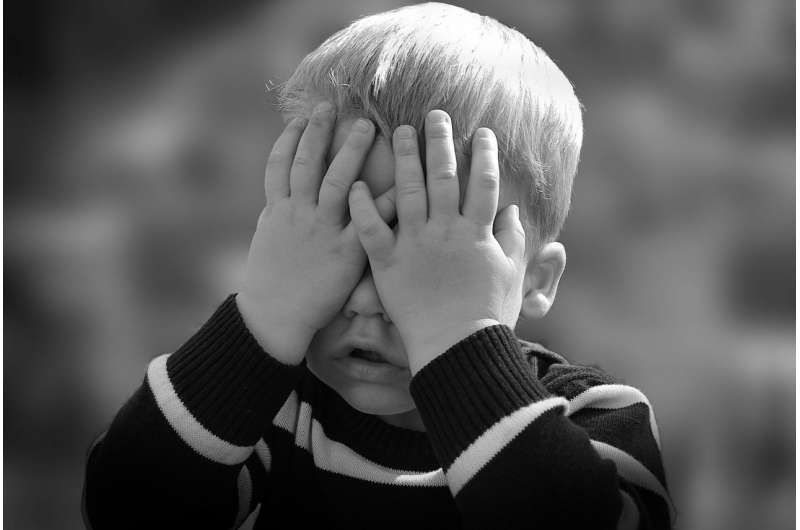This article has been reviewed according to Science X's editorial process and policies. Editors have highlighted the following attributes while ensuring the content's credibility:
fact-checked
trusted source
reputable news agency
proofread
Ask the Pediatrician: How do I prevent dehydration when my child is vomiting?

When your child is throwing up (vomiting), it's easy for them to become dehydrated. The risk is even greater when fever causes them to sweat more, or they are also losing fluid through diarrhea. Depending on how severe or how long the vomiting lasts, your child may lose important electrolytes such as sodium, potassium and chloride.
If your child is otherwise healthy, missing a meal or two when they're nauseous and vomiting won't hurt them. However, it's important to make sure they keep getting fluids to help avoid dehydration.
What causes vomiting?
Vomiting is a common symptom with many childhood illnesses. It happens when the abdominal muscles and diaphragm contract, while the stomach relaxes. This reflex happens when the body's "vomiting center" is triggered. This reflex is the body's way of protecting itself against toxins, being harmfully full and other gastrointestinal, neurological, hormonal and psychiatric triggers.
Oral rehydration therapy is an effective and safe method for preventing dehydration at home. For the first 24 hours or so, consider limiting solid foods and encourage them to suck or drink small amounts of fluids every few minutes over a few hours. The goal should be having them take in at least 1 ounce (30 milliliters) per hour. Liquids help to prevent dehydration and are less likely than solid foods to trigger further vomiting.
You can give your child liquid with age-appropriate bottle or cup. If your child cannot sip from a bottle or cup, try using a medicine cup, syringe or teaspoon.
The types of fluids you should give our child depend on their age.
For those 6 months to 1 year old, provide undiluted breast milk or formula. If not tolerated, consider a commercial rehydration solution that contains sugars and salts. Do not use water.
For children ages 1 year and older, provide commercial oral rehydration solutions (liquid form and popsicles), diluted apple juice or a sports drink (half-water/half-drink).
Be careful with commercial sports drinks. They replace salts, but they can also contain large amounts of sugar, which can make diarrhea worse.
Call your child's doctor right away if your child is too sick to drink, becomes lethargic or shows any signs and symptoms of dehydration. These include:
- Urinating less frequently (for infants, fewer than six wet diapers daily)
- Dry tongue and inside of mouth
- Dry eyes and fewer tears when crying
- Excessive sleepiness or fussiness
- Wrinkled skin
- In babies, a sunken "soft spot" on their head
- In older children, weakness or dizziness when trying to stand
Young children are especially prone to dehydration. This is because their bodies are less efficient at conserving water than older children and adults. In addition, their small size means it takes less fluid loss to lead to dehydration.
Remember to talk with your pediatrician any time you are concerned about your child's health.
For more information, go to HealthyChildren.org.




















